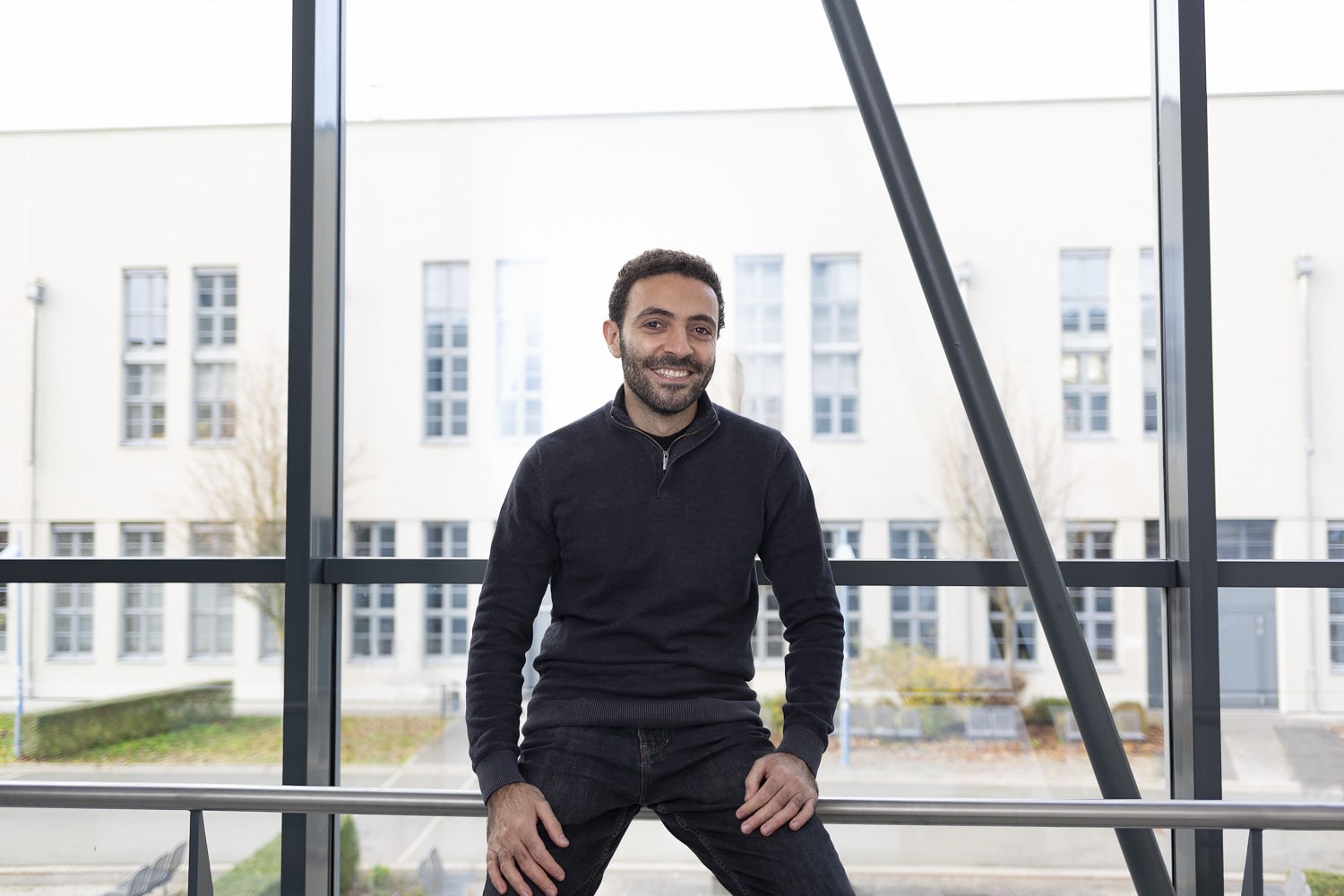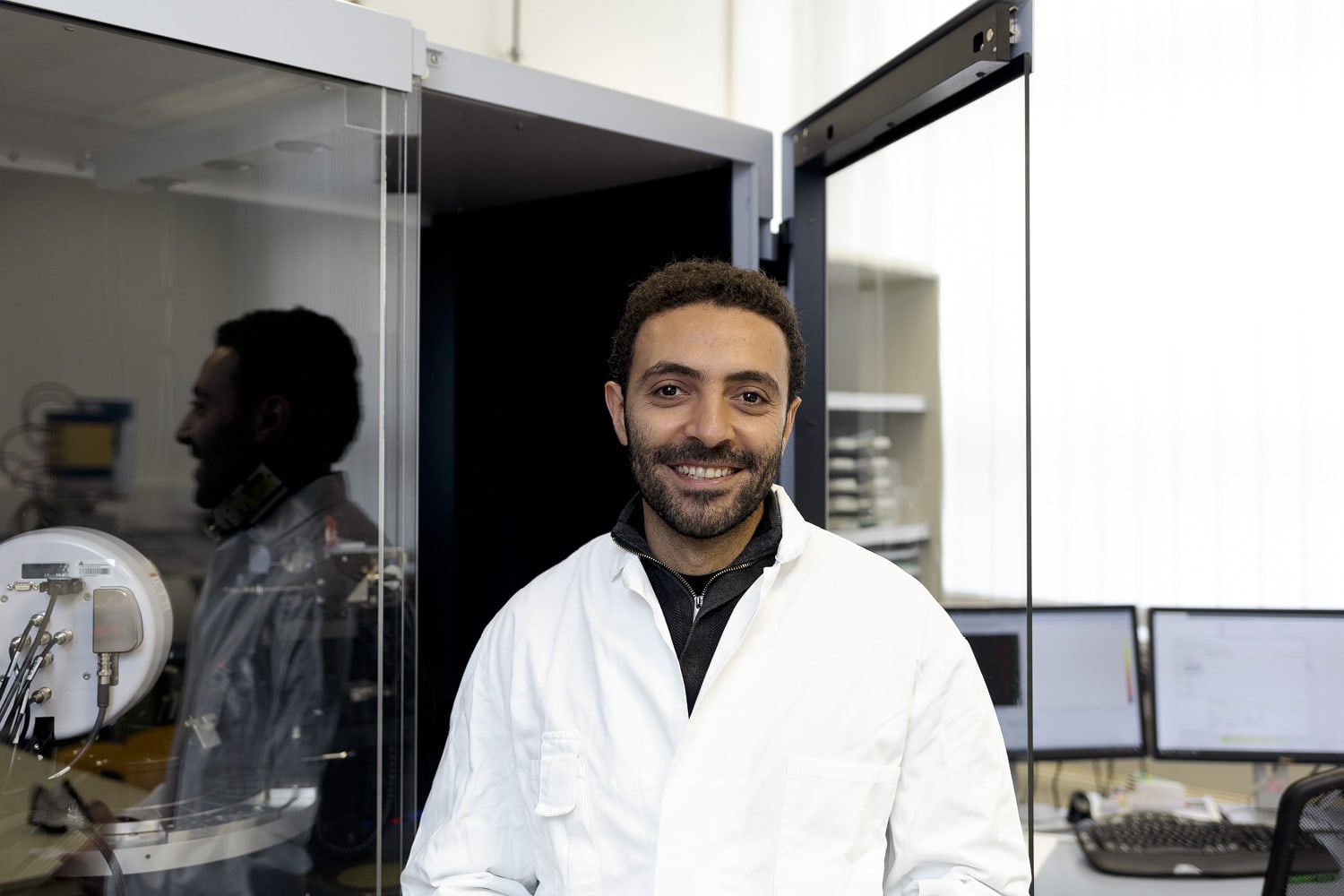Developing small devices to face a global problem
Wasted heat – wasted energy
“In global average more than half of the generated energy is wasted and most of this is wasted as heat. But this heat could be used as a renewable resource for electricity. In our group at the University of Applied Sciences in Jena, we are studying thermoelectric oxides and building thermoelectric devices utilizing ceramics in combination with ceramic multilayer technology. In the end we will have a thermoelectric device, which converts wasted heat into electricity. These devices are very small, only some millimetres, but they can help to make wasted energy reusable. These devices can be used in factories or also in cars to use the wasted heat to generate electrical power. This power can then be used to run a sensor or a small electric circuit.”
“Heat is a side product in many production processes, so it would be good to use this heat and not to waste it.”
“We are trying to improve the existing technology of those devices, focusing on ceramic thermoelectric materials, because they have some advantages, for example their chemical stability at high temperatures and non-toxicity, compared to semiconductor thermoelectric materials, on which the mainstream of research and development in this field is focusing on.”
Facing a global problem with tiny devices
“An important part of my motivation regards the high and still increasing energy consumption due to economic and industrial activities. This has caused and still causes negative effects and global crises like the global warming and increasing CO2 emissions.”
“Therefore there should be a way to develop new technologies that use the wasted heat and transform this waste in a useful product, for example electrical power that can be reused then. This could be considered as a renewable source of energy, because heat is a by-product of many industrial production activities. The thermoelectric devices we are working on have also energy saving aspects.”

Making new technologies applicable to a broad field
“For me one of the most exciting things about my research is, that it is applicable. In the end we end up with products that can be commercialized and really be used in the industry.”
“That is why I decided to do another master at an applied university, so that my work is more oriented to industrial applications.”
Find out more about the research project “IntelKerFun”, founded by the Carl Zeiss Stiftung: https://www.eah-jena.de/forschung/projekt/intelkerfun
The whole process: from raw materials to applicable devices
“Most of the time I’m doing experiments and measurements in our laboratories. It really takes long time to synthesise a new material and then to measure all the electrical and thermal properties. One of my main tasks is also to do simulation programming with different parameters, to find out how much will be the output power of the thermoelectric devices made of these synthesized materials. Our interest is to synthesise materials with high thermoelectric efficiency. The next step is then to build devices based on our simulation results and to test them, to see if the results in power outcome match our simulations.”
“This is a long process starting from the raw materials and ending up with a device that can produce electrical power.”

Research and study in Jena
“I was looking for a study program that was more related to physical application and a closer relation to the industry. Then I found the international master program scientific instrumentation at the University of Applied Sciences and came to Jena. I like the city, it’s small and quiet, especially in comparison to Kairo, where I lived the last years.”
“I really like this calm atmosphere here in Jena. This helps to focus. I also like the nature around the city, mountains, trees and you can go hiking, which I haven’t done much before coming to Jena.”
“I also found some new hobbies here, kayaking on the Saale river or having barbecue when the weather is nice. I really like that.”
“What I would really say to other internationals who are thinking about studying abroad, is that most of the study programs here in Germany are free of charge. This is really an important point in comparison to other countries, especially to the English-speaking countries that everybody is aiming at. I think this is a big advantage for Germany. Also the state-of-art in technology and research, the equipment, the labs and the funding of research is really good. I love this kind of work in research, that we have the freedom to decide what to do and how to do it. I learn something every day here and this is what I really like. It is a learning process which never ends.”
“So, I’m really open to continue working at a research institute also after my PhD or I will try to work in the industry, we will see.”
